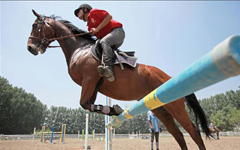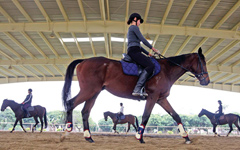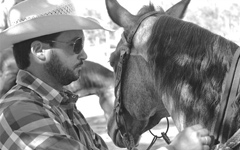Horse betting, a potential business in China?
By Li Xiang in Paris (China Daily) Updated: 2014-02-14 02:37Tianjin, for instance, has invested 1.4 billion yuan ($230 million) to build an Equine Culture City, an extravagant five-year project that includes 4,000 horse stables, a clinic, 150 offices for trainers, international standard racetracks and a horse auction center, according to media reports.
|
|
|
|
|
|
Although there is no imminent sign that Beijing will legalize betting on horse racing soon, the Chinese market will be an inevitable destination for French betting operators and horseracing organizers, which are facing decline domestically because of the economic crisis in Europe.
In 2012, PMU posted a net profit of 865 million euros, down by 1.3 percent on the previous year.
"Betting on horse races in France is a mature business so the capacity to expand with double-digit growth is no longer feasible," Germond said, adding that the current economic crisis in Europe has resulted in tightening the leisure budgets of its customers, given that the betting business is directly linked to the macroeconomic environment.
"Expanding the business outside France is our priority to maintain the growth of our activity and net profit," he said. Last year, PMU achieved 94 percent year-on-year international growth, which helped compensate for the slowdown at home, he said.
In 2012, PMU began to export its betting products to the United States, South Africa and Belgium, which generated an extra 112 million euros of turnover for the company, according to its financial report.
- NHTSA says finds no 'defect trend' in Tesla Model S sedans
- WTO rare earth ruling is unfair
- Amway says 2014 China sales may grow 8%
- President Xi in Europe: Forging deals, boosting business
- CNOOC releases 2013 sustainability report
- Local production by Chery Jaguar Land Rover this year
- Car lovers test their need for speed in BMW Mission 3
- China stocks close mixed Monday




















